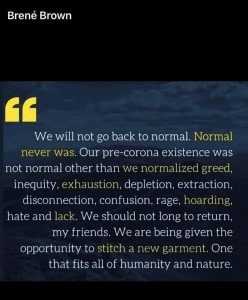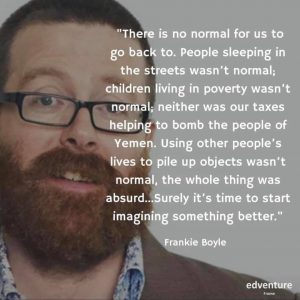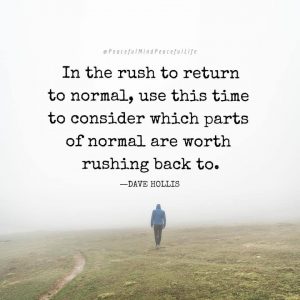
At the height of the American Civil War, Abraham Lincoln gave and address at the Battle of Gettysburg in 1863 that contained these words. “this nation, under God, shall have a new birth of freedom – and that government of the people, by the people, for the people shall not perish from the earth.” What we sometimes forget, is that this battle was directly related to the global market system of the time. The battle in the USA was whether the State was there in the vision of the founding mothers and fathers of the nation to be centred on human freedom, or like many other nations, end up just another expression of an oppressive feudal state where the uber rich oppress the many. The battle at the heart of this civil war was for the right to enslave human beings as the cheapest form of labour in the growing of global commodities of the time. Lincoln won the battle, but I do not think he won the war. Looking back at the USA now in 2020, I think we can clearly see that the market won and civil rights has never been fully delivered in one of the most divided and unequal societies in the world.
What exists now in the USA and now in the UK is economic slavery, maintaining cheap labour with reduced employment and terrible wages. The Global Market won, and democracy and equality lost out. We are now all commodified and where human dignity is now in decline. You could argue that actually there has been a constant state of battle in the Western World ever since the Black death in 1346, when the feudal system and oppressive market society collapsed in the pandemic, as there were too few workers, so that wages and freedoms had to rise to ensure crops and industry were sustained. It was purely economics that drove this social change, and that since then there has been a battle between a society of justice and fairness v a market feudal oppressive system culminating in our current society. Until recently you could argue the market had won, but now in another global pandemic, will this give us an opportunity again to diminish the power and relentless scourge of the market society? Or will it actually make a more feudalist system more likely to be reimposed? How does the church respond?
We remember that Jesus’ entire ministry happened in the context of the oppression of the Jewish people under the super power of the time, and that included the imposition of an international market system at the time. It has always been a personal bafflement to me why Jesus did not call out this oppression at the time, other than Jesus being clear about money about fairness and money being of this world in Caesars name. The only hint of challenge to this, are the words of Jesus before Pilate after he had been flogged where he says “I am not of this world’. Chad Myers helpfully reminds us that the greek here for ‘world’ here is ‘Kosmos’ the same as ‘domination system’. With this in mind, Jesus is calling out the Roman Empire as a militaristic market society as a domination system and so we Christians, holding onto our understanding of Jesus ‘now but not fully yet’ Kingdom in the context of having to live in a domination system, but not of a domination system,
I want to point out at this point, I am not being an extreme Socialist or Communist, this is the stories of the Gospels and and Letters of the Apostles, and my thought has always been that more conservatively inclined Christians really need to get back the Gospel narrative, as you will be in for a shock!
So how do Christians react to the reality that our market society continues to oppression and now leads to destruction with global warming and ecocide. Mission has to start with economic, ecological and social justice. These are the heart of the Judaeo-Christian understandings of stewardship, jubilee and the Kingdom. We can not idly sit by and see successive governments just continue to oppress people. What will it take for Christians in the UK to stand up to the oppression of the market and the invisible power of the super-rich as Jesus sides with the unbearably poor? What will it take to seek a Government that prevents the excesses of the market system by what used to be called a mixed economy? What will it take for this to be seen by the church to be a missional priority? It is not just about evangelism , fresh expressions and new ecclesial communities. like Jesus turned over the market stalls in the temple for causing de-sacralisation, so we as Christians should be challenging and turning over the market stalls threatening the wellbeing of people and the continued existence of our planet. It is high time that the Christian Church rediscovered it’s calling and historic roots. Now in this pandemic, can we face this calling to prophetic witness and prophetic living.



